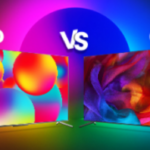As technology advances, the battle for higher resolutions continues, with 8K TVs emerging as the latest trend in home entertainment. But with a price tag that can be significantly higher than 4K models and limited content availability, many consumers are left wondering: is 8K really worth it? Let’s dive into the details.
What is 8K Resolution?
8K resolution boasts a staggering 7680 x 4320 pixels, which equals about 33 million pixels in total. This is four times the resolution of 4K (3840 x 2160) and sixteen times that of Full HD (1920 x 1080). Theoretically, this means incredibly sharp images with finer details.
Benefits of 8K TVs
- Enhanced Picture Quality:
- The increased pixel density means that even when viewed up close, images remain sharp and detailed. This is particularly noticeable on larger screens.
- Upscaling Technology:
- Many 8K TVs come equipped with advanced upscaling technology that enhances lower-resolution content, making it look better on an 8K screen. This can help bridge the gap until more native 8K content becomes available.
- Future-Proofing:
- As 8K content gradually becomes more accessible (e.g., through streaming services or gaming), investing in an 8K TV could be seen as a way to future-proof your setup.
- Immersive Experience:
- The increased detail can create a more immersive viewing experience, especially for large screen sizes.
Drawbacks of 8K TVs
- Limited Content:
- Currently, native 8K content is scarce. Most programming still exists in 4K or lower resolutions. While upscaling can improve the appearance of this content, it may not be as satisfying as true 8K.
- High Cost:
- 8K TVs are typically priced significantly higher than their 4K counterparts. The investment may not be justifiable for many consumers, especially given the limited content.
- Diminishing Returns:
- For most viewing distances, particularly in standard living room setups, the difference between 4K and 8K may not be perceivable to the average viewer. The human eye may struggle to notice the additional detail unless sitting very close to a large screen.
- Technological Overkill?
- Some argue that current 4K technology, especially when combined with HDR (High Dynamic Range), already provides a stunning viewing experience that may meet most viewers’ needs.
The Verdict: Is 8K Worth It?
For Early Adopters and Tech Enthusiasts: If you’re passionate about technology and want the latest in home entertainment, an 8K TV might be worth considering. The promise of future content and enhanced upscaling could appeal to those who love to stay on the cutting edge.
For Average Consumers: For most viewers, especially those watching in standard settings and without a dedicated home theater, investing in a high-quality 4K TV with good HDR capabilities is likely a more practical choice. The current ecosystem of content and pricing makes 4K a more sensible option for everyday viewing.
Conclusion
While 8K technology offers impressive specifications and potential, its value largely depends on your viewing habits and environment. As the market for 8K content grows, the appeal of 8K TVs may increase, but for now, many consumers may find greater satisfaction in a well-chosen 4K television. It’s essential to weigh the benefits against the current limitations before making a decision.



